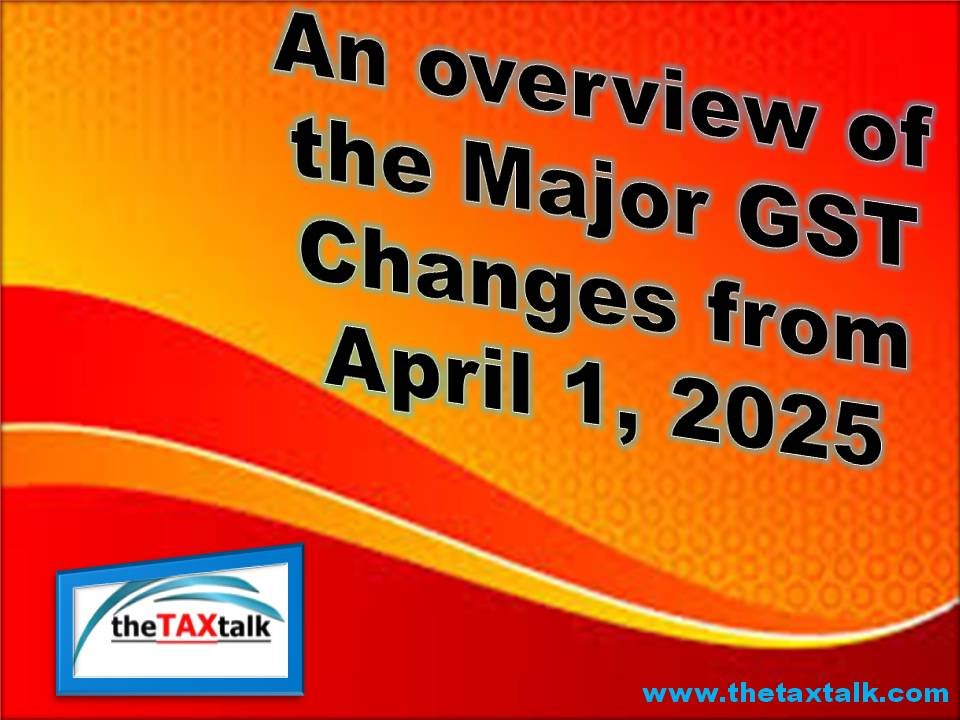![]()
An overview of the Major GST Changes from April 1, 2025
Let us have an overview of the Major GST Changes from April 1, 2025. The same is summarized as under:
Tighter E-Invoicing Norms:
Large businesses with a turnover exceeding ₹10 crore now face a stricter timeline for e-invoice uploads. Invoices must be reported to the Invoice Registration Portal (IRP) within 30 days of issuance, failing which the upload will be outright rejected-a move aimed at curbing fraudulent transactions and improving real-time tax reporting.
Wider Scope for Input Service Distributors (ISD):
The ISD mechanism, originally designed for distributing input tax credit (ITC) among branches, now extends to inter-state reverse charge services. This shift simplifies ITC allocation, ensuring tax credits flow smoothly across business entities with pan-India operations.
Track & Trace Compliance:
In a bid to tighten supply chain monitoring, certain categories of goods will now require unique identification markings (UID), enabling tax authorities to trace product movement.
Non-compliance carries stiff penalties-₹1,00,000 or 10% of tax payable, whichever is higher-underscoring the importance of supply chain transparency.
No GST on Vouchers:
A notable departure from the past, vouchers-such as gift cards, meal coupons, and prepaid store cards-will no longer attract GST. The tax department has delinked vouchers from the definition of goods or services, simplifying their treatment in tax filings.
Credit Note Restrictions:
Suppliers can now adjust their tax liability against credit notes only if the recipient reverses the input tax credit (ITC). This measure discourages misuse of credit notes and strengthens revenue safeguards.
Lower Pre-Deposit for Appeals:
Taxpayers contesting penalties will find some relief-pre-deposit requirements have been reduced from 25% to 10% for penalty-only appeals, easing the financial burden of litigation.
Enhanced GSTR-3B Disclosures:
The GSTR-3B return form will undergo changes, introducing new fields for late fees and interest disclosures. This aims to improve transparency and minimize disputes related to delayed filings.
Aadhaar Authentication for Registration:
Businesses opting to skip Aadhaar authentication during GST registration will now face mandatory physical verification at designated facilitation centers. This step seeks to curb bogus registrations and reinforce tax compliance.
Mandatory E-Way Bills for Unregistered Persons:
In an effort to plug revenue leakages, the movement of goods by unregistered persons will now necessitate e-way bills-a regulatory tightening aimed at improving supply chain visibility.
For businesses, staying ahead of these changes will be critical-not merely to avoid penalties, but to optimize operational efficiency in the evolving GST landscape.


